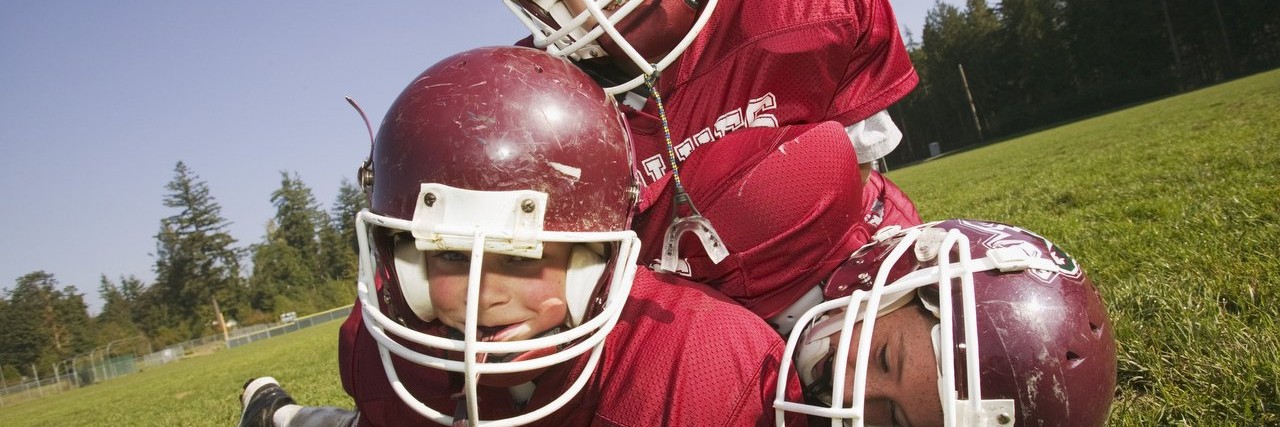The Day I’ll Have to Tell My Son He Can’t Play Contact Sports
After 12 surgeries, my son, Jaxson, will be 4 in July. This is the first summer he’s been truly healthy. There are no planned surgeries — just follow-up appointments and therapies.
Watching him grow as a person this spring and summer has been such a joy. When we go to the playground, he can climb and do many things on his own that he couldn’t do before. He’s been willing to try new things, and he’s asserting his independence like any 3-year-old would.
But there’s one thing about Jax that separates him from most other kids. Because he has a mechanical valve, he has to take a blood thinner for the rest of his life. We’re six months out of surgery, and he hasn’t yet maintained a therapeutic level. But that hasn’t hindered his growth and skyrocketing developmental skills. It also hasn’t stopped him from telling us he wants to play sports.
Jax loves to play catch, kick the ball around, dribble a basketball and spike a football for a touchdown. I’ve always got a game on in the evenings, whether it’s one of the four major sports or something else. I love sports, and Jaxson picked up on it.
When he gets older, I’ll have to have this conversation with him. I’ll have to tell him can’t play contact sports. If you are unfamiliar with blood thinners, any small cut can become life-threatening. His blood has to be thinner to keep it flowing through the mechanical valve, but that also means that any injury can be deadly.
For example, my dad also takes a blood thinner, and one year on Christmas Eve, he had to miss the service because he nicked himself shaving. It was a tiny little cut, but it had barely stopped bleeding when we got back nearly two hours later. Imagine a gash, a broken bone, a ball to the face, broken ribs or anything that can cause a more serious injury. It could turn any game into an emergency situation.
When Jax started the medication in December, I knew he’d never be able to play contact sports. He loves to play, rough-house and chase kids, but no doctor will ever release him medically to play a contact sport. And even if I found one, I’m not sure I’d allow him to play. No game is worth his life.
All of this has lead me to realize I need to figure out how to approach the conversation when it arises. Luckily, he’s still young, and it probably won’t happen for a few years at least. And he’s a smart kid, so I’m sure he’ll understand everything.
But that doesn’t make it any easier. And it’s not going to make accepting the look of disappointment on his face any easier, too.
Jax has a full and happy life ahead of him. He will require future surgeries to replace his valve, among other things, but he’s quickly catching up to his peers in many areas.
He brings light, life and laughter everywhere he goes. He’ll still be able to participate in non-contact sports like swimming should he decide to, but no matter what he chooses, he will give it all he’s got.
He’s a fighter and a survivor. And one day, he will share it with the world.
Imagine someone Googling how to help you cope with your (or a loved one’s) diagnosis. Write the article you’d want them to find. If you’d like to participate, please check out our Submit a Story page for more about our submission guidelines.
Lead photo source: Thinkstock Images

